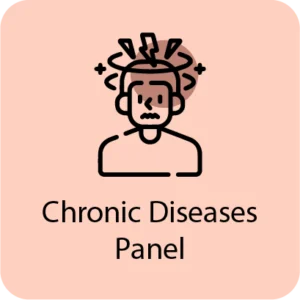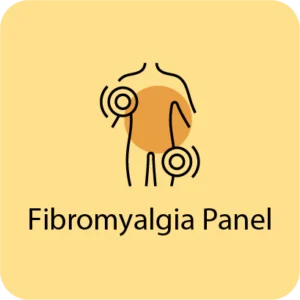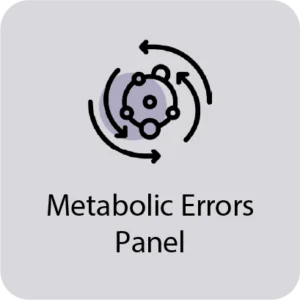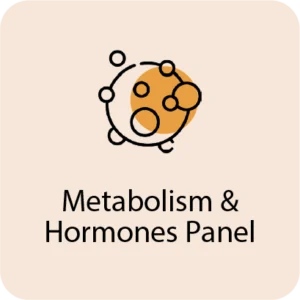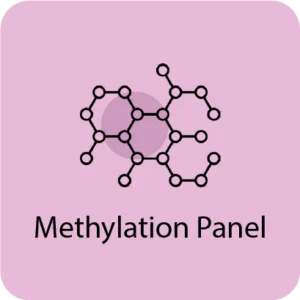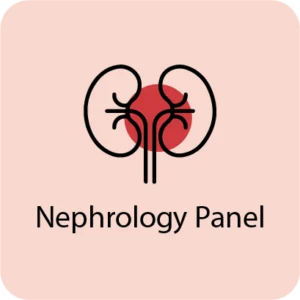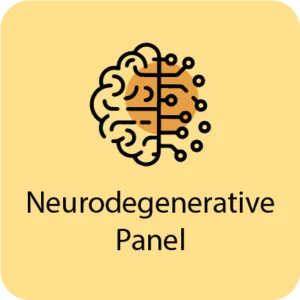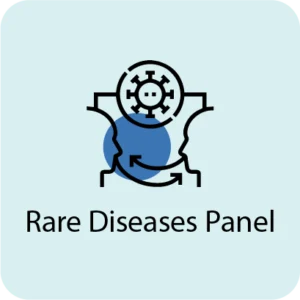Endocrinology & Metabolism
Endocrinology and metabolism are integral aspects of human physiology, governing the intricate balance of hormones and metabolic processes that regulate essential functions throughout the body.
Endocrinology focuses on the study of hormones and the endocrine system. On the other hand, metabolism pertains to the chemical processes that convert food into energy and sustain life.
Understanding Endocrinology:
The endocrine system comprises glands that help in producing hormones. These shall act as chemical messengers for regulating some of the bodily functions. This includes growth and metabolism, development, reproduction, mood, and stress response. Those key glands in the endocrine system include the pituitary gland, thyroid gland, adrenal glands, pancreas, and gonads (ovaries and testes). Some of the hormones do travel through the bloodstream to target cells or organs, where they exert their effects by binding to specific receptors.
Common Endocrine Disorders:
Endocrine disorders arise when there is an imbalance or dysfunction in hormone production, secretion, or signaling. This act shall lead to a wide range of health issues. Some Common endocrine disorders include:
- Diabetes mellitus: A condition characterized by high blood sugar levels due to insufficient insulin production or impaired insulin function. It results in hyperglycemia and metabolic disturbances.
- Thyroid disorders: Conditions such as hypothyroidism (underactive thyroid) and hyperthyroidism (overactive thyroid) affect thyroid hormone production. This condition can lead to symptoms like weight changes, fatigue, and temperature dysregulation.
- Adrenal disorders: Like Addison’s disease and Cushing’s syndrome, affect adrenal hormone production. It leads to hormonal imbalances, electrolyte abnormalities, and metabolic disturbances.
- Pituitary disorders: Like pituitary tumors and hormone deficiencies (e.g., growth hormone deficiency). This can disrupt hormone production and cause various health problems, such as growth issues and reproductive dysfunction.
- Reproductive disorders: Like the endocrine system, polycystic ovary syndrome (PCOS) and male hypogonadism, affect hormone levels and reproductive function. This leads to some menstrual irregularities, infertility, and sexual dysfunction.
Understanding Metabolism:
Metabolism encompasses the biochemical processes. This occurs within cells to convert nutrients from food into energy, as well as the synthesis, breakdown, and storage of molecules. It is well essential for cellular function and proper maintenance. Metabolic pathways involve some complex interactions between enzymes, hormones, and cellular organelles. It regulates energy balance, nutrient utilization, and waste disposal.
Key Components of Metabolism:
- Anabolism: Anabolic pathways shall involve the synthesis of complex molecules right from those simpler precursors. It needs proper energy input. Like the synthesis of proteins, carbohydrates, and lipids for growth, repair, and energy storage.
- Catabolism: It involves the breakdown of complex molecules which are quite simple components. It releases energy in the process. Examples include the breakdown of carbohydrates, fats, and proteins to generate ATP (adenosine triphosphate), the body’s primary energy currency.
Common Metabolic Disorders:
Metabolic disorders arise when there is some disruption in metabolic pathways. It shall lead to some abnormalities in energy metabolism, nutrient processing, and waste elimination. Some common metabolic disorders include:
- Obesity: It results from an imbalance between energy intake and expenditure. This leads to excessive accumulation of body fat. It is associated with numerous health complications, including type 2 diabetes, cardiovascular disease, and metabolic syndrome.
- Metabolic syndrome: It is a cluster of conditions, like abdominal obesity, insulin resistance, high blood pressure, and dyslipidemia. This shall enhance the risk of cardiovascular disease and type 2 diabetes.
- Hyperlipidemia: The issue refers to elevated levels of lipids (e.g., cholesterol and triglycerides) in the blood. The condition can contribute to atherosclerosis, heart disease, and stroke.
- Metabolic bone diseases: Disorders like osteoporosis and osteomalacia affect bone metabolism. It shall further lead to lowered increased fracture risk, bone density, and skeletal abnormalities.
- Inborn errors of metabolism: Those genetic disorders that impair the body’s ability to metabolize specific nutrients or synthesize essential molecules. It shall result in a wide range of metabolic abnormalities and clinical manifestations.
LifeCode: Providing Comprehensive Management, Testing, and Solutions for Endocrinology & Metabolism:
LifeCode is well committed to providing comprehensive services for endocrinology and metabolism. It shall address the unique needs of each individual with personalized care, advanced testing, and innovative solutions. Lifecode’s approach:
- Management of Endocrine Disorders: It offers expert management of endocrine disorders, including diabetes, thyroid disorders, adrenal disorders, pituitary disorders, and reproductive disorders. This goes through personalized treatment plans, medication management, lifestyle interventions, and ongoing monitoring.
- Metabolic Assessment and Intervention: It conducts comprehensive metabolic assessments for evaluating metabolic function. It identifies risk factors for metabolic disorders and develops tailored interventions to optimize metabolic health. This includes nutritional counseling, exercise prescriptions, and weight management strategies.
- Hormone Testing and Monitoring: Assess hormone levels, identify hormonal imbalances, and guide treatment decisions for endocrine disorders, reproductive health issues, and metabolic abnormalities.
- Diabetes Care and Education: Helps empower individuals with diabetes to manage their condition effectively. It shall enhance glycemic control, prevent complications, and enhance quality of life. This goes through personalized self-management strategies, medication optimization, and lifestyle modifications.
- Lifestyle Medicine and Wellness Programs: The initiatives help in supporting healthy behaviors. This shall prevent chronic disease, and optimize overall health and well-being. While nutrition counseling, physical activity programs, stress management techniques, and behavioral interventions.
Endocrinology and metabolism play critical roles in maintaining health and well-being, which influence various physiological processes and metabolic pathways throughout the body.
LifeCode Healthcare is dedicated to providing comprehensive management, testing, and solutions for endocrine and metabolic disorders, which helps individuals optimize their health while managing chronic conditions. It also improves the quality of life.
If you have any questions about endocrinology, metabolism, or our services, please don’t hesitate to contact us. Together, we can work towards promoting health, vitality, and longevity for all.
| Categories | Conditions Observed |
|---|---|
| Allergies | Alcohol Aversion |
| Gluten Sensitivity | |
| Amino acids | Glutamate Production |
| L-theanine | |
| L-tyrosine | |
| Serine Deficiency | |
| Antioxidants / Supplements | Coenzyme Q10 |
| Glutathione | |
| Need for a diet rich in antioxidants | |
| Probiotics | |
| Behavioral Changes | Mood Disorder |
| Behaviors | Dopamine Levels |
| Benefit | Chamomile |
| S-adenosylmethionine (SAMe) | |
| Stevia Sweetener Benefit | |
| Cancer | Multiple Endocrine Neoplasm |
| Thyroid Neoplasm | |
| Cardiovascular | Arginine-succinic aciduria |
| Familial Hyperlipoproteinemia Type III | |
| Hereditary familial hypercholesterolemia | |
| Hypercholesterolemia (Type B) | |
| Cardiovascular and Cerebrovascular | Homocysteine Accumulation |
| Hypertension | |
| Phospholipase Cg2 Defect | |
| Sensitivity to Salt (Hypertension) | |
| Diabetes | CAPN10 |
| DPP-4 | |
| Diabetic Neuropathy | |
| ENPP1 | |
| Early Type 2 Diabetes | |
| Fasting Glucose Level Increase | |
| Fasting Insulin | |
| GLP-1 | |
| GLUT4 | |
| Glucose Intolerance | |
| IRS-1 | |
| Insulin Sensitivity | |
| Insulinogenic Index | |
| Lower Insulin Secretion | |
| MODY Type 1 Diabetes | |
| MODY Type 2 Diabetes | |
| MODY Type 3 Diabetes | |
| MODY Type 4 Diabetes | |
| MODY Type 5 Diabetes | |
| MODY Type 6 Diabetes | |
| MODY Type Diabetes | |
| PI3K | |
| Reduction in Insulin Secretion | |
| Regulation of Oxidative Phosphorylation in Skeletal Muscle | |
| Type 1 Diabetes | |
| Type 2 diabetes | |
| Weight Reduction in Liraglutide Treatment | |
| Β Cell Function Impairment | |
| Digestive system | Family diarrhea |
| Hyperglycinuria | |
| Hyperlipoproteinemia | |
| Peroxisomal Enzyme Deficiency | |
| Drug Reactions | Better Response to Methotrexate |
| Endocrine system | Addison’s Disease |
| Autoimmune Thyroid Disease | |
| Benefit of adopting a low glycemic index diet | |
| Congenital Adrenal Hypoplasia (CAC) | |
| Hashimoto’s Thyroiditis | |
| Hyperparathyroidism | |
| Hyperthyroidism | |
| Hypophosphatemic Rickets | |
| Hypothyroidism | |
| Hypothyroidism (Goiter) | |
| Monogenic Diabetes | |
| Resistance to Thyroid Hormone | |
| Severe Neonatal Hyperparathyroidism | |
| T3 | |
| Thyroid Orbitopathy (OT) | |
| Thyroid dyshormonogenesis | |
| Thyrotoxicosis | |
| Transient Neonatal Diabetes | |
| Essential Amino Acids | L-lysine |
| L-methionine | |
| Fatty acids | Omega 6 |
| Omega 9 | |
| General | Alcohol Intolerance |
| Aversion to Vegetables and Coffee | |
| GS | |
| INSR | |
| p70S6K | |
| Genetic diseases | Alpha Antitrypsin Deficiency (AAT) |
| Alpha Hydroxyphenylpyruvate Hydroxylase Deficiency | |
| Chitotrioidase Deficiency | |
| Cholesterol Ester Transfer Protein Deficiency | |
| Congenital Adrenal Hyperplasia (CAC) | |
| Cytichrome-C Oxidase Deficiency | |
| Deficiency of Tetrahydrobiopterin Synthesis | |
| Dihydropyridine Dehydrogenase Deficiency | |
| Familial Adenomatous Polyposis | |
| Familial Glucocorticoid Deficiency (DFG) | |
| Gamma-Glutamylcysteine Synthetase Deficiency | |
| Glutathione S-transferase-1 Mutation | |
| Glutathione Synthetase Deficiency | |
| Lysosomal Acid Lipase Deficiency | |
| Mevalonate Kinase Deficiency | |
| Mutation of Glutathione Peroxidase-1 | |
| Mutation of Glutathione S-transferase (GST) theta 1 | |
| Mutation of Glutathione S-transferase M1 | |
| Mutation of Iodothyronine Deiodinase 2 | |
| Mutation of Superoxide Dismutase-1 | |
| Mutation of Superoxide Dismutase-2 | |
| Mutation of Superoxide Dismutase-3 | |
| OKT4 deficiency | |
| Platelet Glycoprotein Deficiency IV | |
| Pyridoxine Deficiency | |
| Rasopathies | |
| Werner’s Syndrome | |
| Hematologic system | Albumin |
| Anemia | |
| Aplastic anemia | |
| Apolipoprotein E | |
| Fanconi’s anemia | |
| G6PD deficiency | |
| HDL (Cholesterol) | |
| HDL Deficiency (Family) | |
| Hemolytic Anemia | |
| High Ferritin | |
| High ferritin (in men) | |
| Hyperhomocysteinemia | |
| Hyperinsulinemia | |
| Hypoproteinemia | |
| L-ferritin deficiency | |
| Sickle cell anemia | |
| Triglycerides | |
| Hereditary diseases | Lipotransferase 1 deficiency |
| Hormone | Acromegaly |
| Adiponectin Flag | |
| Androstenedione | |
| Anti-Müllerian hormone (AMH) | |
| Change of Timo | |
| Cushing’s Syndrome | |
| Folic Acid Metabolism | |
| Growth Hormone (GH) Deficiency | |
| Leptin | |
| Luteinizing Hormone (LH) | |
| Reduction of Thyroid Hormonal Metabolism | |
| Renina’s Greatest Activity | |
| Resistin | |
| SHBG levels | |
| TSH | |
| Thyroid Function | |
| Thyroid Hormone Metabolism (T3: T4 Reduced Ratio) | |
| Hormones | 5α-Reductase |
| Adiponectin Levels | |
| Adrenal function | |
| Adrenaline | |
| Adrenocorticotrophic Hormone | |
| Aromatase Deficiency | |
| Benefit of Melatonin | |
| Cortisol Level | |
| DHEA/DHEAS | |
| Estradiol | |
| Estriol | |
| Estrone | |
| Excess of Aromatase | |
| Growth Hormone Response | |
| Impact of GH Replacement Treatment on Lipid Profile | |
| Increased Cortisol (in women) | |
| Inhibin | |
| Insulin Resistance | |
| Noradrenaline | |
| Parathyroid Hormone (PTH) | |
| Progesterone | |
| Somatostatin | |
| T4 | |
| Testosterone | |
| Vasopressin (Antidiuretic Hormone – ADH) | |
| Immune system | Autoimmune Disease |
| C3 (immune) deficiency | |
| Crohn’s disease | |
| Defect in Thyroid Hormonogenesis | |
| Human Leukocyte Antigen (HLA) | |
| Mannose Binding Protein Deficiency | |
| Inflammations | Increased IL-6 with Vitamin E (Alpha-tocopherol) intake |
| Sjogren’s Syndrome | |
| Metabolic | Ability to Digest Starch |
| Ability to digest starch | |
| Ammonia and Glutamate Production | |
| BCKDK gene | |
| CBS Gene – Transsulfuration | |
| Caffeine Metabolization | |
| Carbohydrate Metabolism | |
| Decline of NAD | |
| Detox (Detoxification) | |
| Detoxification | |
| Glutamate to GABA Conversion | |
| Gluten Intolerance | |
| Glycation | |
| Greater Insulin Sensitivity with Physical Exercise | |
| HDL increase with Omega 6 intake | |
| Improving Insulin Sensitivity with Physical Exercise | |
| Lactate dehydrogenase (LDH) | |
| Leptin receptor polymorphism | |
| Lipid Metabolism | |
| Metabolic syndrome | |
| Methionine Adenosyltransferase Deficiency | |
| Methylation | |
| Micronutrient Metabolism | |
| Obesity | |
| Protein Metabolization | |
| Resting Metabolism | |
| Starch Metabolism | |
| Trend of Eating Sweets | |
| Trend of Overeating (Gluttony) | |
| Trend to regain weight | |
| Weight Gain Trend | |
| Metabolic disorders | 3-Hydroxy-3-Methylglutaryl-CoA Lyase Deficiency |
| 3-Hydroxy-3-Methylglutaryl-CoA Synthetase 2 Deficiency | |
| 3-Hydroxyacyl-CoA Dehydrogenase Deficiency | |
| Abetalipoproteinemia (Bassen-Kornzweig Syndrome) | |
| Abetalipoproteinemia (Diet) | |
| Adenosine Monophosphate Deaminase Deficiency | |
| Alpha Methyl Acetoacetic Aciduria | |
| Bile Acid Synthesis Deficiency | |
| Brain Folate Transport Deficiency | |
| Carnitine Acylcarnitine Translocase Deficiency | |
| Carnitine Palmitoyltransferase I Deficiency | |
| Carnitine Palmitoyltransferase II Deficiency | |
| Cerebral Creatine Deficiency Syndrome | |
| Cerebrotendinous Xanthomatosis | |
| Congenital Sucrase Isomaltase Deficiency | |
| Dopa-Responsive Dystonia (DRDSPRD) | |
| Dyslipidemia | |
| Enteropathic Acrodermatitis | |
| Familial hypercholanemia | |
| Fetuin-A | |
| Fructose-1,6 Bisphosphatase Deficiency | |
| Fructosemia | |
| Galactokinase Deficiency | |
| Galactosemia | |
| Glucose/Galactose Malabsorption | |
| Glutaric Aciduria | |
| Glycogen Storage Disease | |
| Glycogen Storage Disease Type IXa | |
| Glycogen Storage Disease type IXb | |
| Glycogenosis Type 0A | |
| Glycogenosis Type IB/IC | |
| Hereditary Folate Malabsorption | |
| Hereditary Fructose Intolerance | |
| Hyperferritinemia | |
| Hyperphenylalaninemia due to BH4 Deficiency | |
| Hyperprolinemia | |
| Hypophosphatasia | |
| It-type Congenital Glycosylation Disorder | |
| Lysinuric Protein Intolerance | |
| Lysosomal Acid Lipase Deficiency | |
| Maple Syrup Disease (Leucinosis) | |
| Medium Chain Acyl-CoA Dehydrogenase Deficiency | |
| Methylmalonic Acidemia | |
| Methylmalonic Aciduria and Homocystinuria | |
| Methylmalonic aciduria | |
| Mild Hyperphenylalaninemia without BH4 Deficiency | |
| Monocarboxylate Carrier 1 Deficiency | |
| Multiple Acyl-CoA Dehydrogenase Deficiency | |
| N-Acetylglutamate Synthetase Deficiency | |
| Niacin’s Benefit in Reducing Liver Fat | |
| Phosphoserine Aminotransferase Deficiency | |
| Pituitary Deficiency (Hypopituitarism) | |
| Primary Systemic Carnitine Deficiency | |
| Propionic Acidemia | |
| Purine Nucleoside Phosphorylase Deficiency | |
| Segawa Syndrome | |
| Succinyl-CoA 3-oxoacid-CoA transferase deficiency | |
| Thiamine 2 Metabolism Dysfunction Syndrome | |
| Thiamine 4 Metabolism Dysfunction Syndrome | |
| Thiamine 5 Metabolism Dysfunction Syndrome | |
| Trifunctional Mitochondrial Protein Deficiency | |
| Type IA glycogenosis | |
| Type III glycogenosis | |
| Type IV glycogenosis | |
| Type Ib Congenital Glycosylation Disorder | |
| Type Iz Congenital Glycosylation Disorder | |
| Type VI glycogenosis | |
| Tyrosine Hydroxylase Deficiency | |
| Tyrosinemia | |
| Very Long Chain Acyl-Coa Dehydrogenase Deficiency | |
| Vitamin E Deficiency | |
| Xenobiotic Metabolism (Including Caffeine and P-450) | |
| Mitochondria | Oxidative Phosphorylation |
| Need for Nutrients | Apigenin need |
| Benefit of Bergamot | |
| Betaine | |
| Bromelain | |
| Calcium | |
| Choline | |
| Chrome | |
| Copper | |
| Hop | |
| Iodine | |
| Iron | |
| Lutein | |
| Lycopene | |
| Magnesium | |
| Manganese | |
| Phosphatidylcholine Levels | |
| Phosphorus | |
| Potassium | |
| Quercetin | |
| Reaction to Glutamate | |
| Selenium | |
| Tetrahydrobiopterin | |
| Vitexin need | |
| Zeaxanthin | |
| Zinc | |
| Neurodegenerative diseases | Peripheral neuropathy |
| Oxidation | Antioxidant Capacity |
| Glutamic Acid Metabolism | |
| Individuals not expressing CYP3A5 | |
| Oxidative stress | |
| Personal characteristics | Alcohol Metabolism |
| Greater Stimulus with Caffeine | |
| Hypersensitivity to Non-Steroidal Anti-Inflammatory Drugs (NSAIDs) | |
| Increased Probability of Fatigue | |
| Mitochondrial Energy Production | |
| Pineal Hyperplasia | |
| Spondyloepiphyseal Dysplasia | |
| Psychiatric | Anorexia Nervosa |
| Reactions to Treatments | Levothyroxine Combination therapy with Liothyronine |
| Reproductive system | Age at Menarche |
| Gestational diabetes | |
| Polycystic Ovary Syndrome | |
| Skeletal system (bones) | Development Defects |
| Risk of amputation in case of diabetic foot ulcer | |
| Skin | Elastin Deficiency |
| Urinary system | Uric Acid (Concentration) |
| Vision (Ophthalmology) | Diabetic retinopathy |
| Vitamins | Folate |
| Vitamin A | |
| Vitamin B12 | |
| Vitamin B2 | |
| Vitamin B6 | |
| Vitamin B7 (Biotin) | |
| Vitamin B9 (Folic Acid) | |
| Vitamin C | |
| Vitamin D | |
| Vitamin E | |
| Vitamin K | |
| Vitamins need | Reduced Conversion of Beta Carotene to Retinol |
| Riboflavin Deficiency | |
| Weight | Absorption of Fats |
| Benefit of Physical Exercise for Weight Loss | |
| Fat Metabolism | |
| Fibers and slimming | |
| Ghrelin | |
| Greater Resistance to Weight Loss on Low Calorie Diets | |
| High Levels of Fatty Acids after Fat Ingestion | |
| Increased waist measurement with the habit of smoking a lot | |
| Intake of saturated fat and increased body fat | |
| Irisina | |
| Lower Use of Glucose after Carbohydrate Ingestion | |
| Lower Weight Gain on High Fat Diets | |
| Obesity (monogenic) | |
| Obesity in Adolescents | |
| Preference for bitter foods | |
| Preference for fatty foods | |
| Preference for sweet foods | |
| Quantitative Body Mass Index (BMI) | |
| Reduction of body fat with intervention of polyphenols | |
| Slimming with Restricted Carbohydrates Intake | |
| Slimness | |
| Trend of Higher Protein Consumption | |
| Trend of Monounsaturated Fat Intake and Weight Gain | |
| Trend of Polyunsaturated Fat Intake and Weight Gain | |
| Trend towards Higher Carbohydrate Consumption | |
| Visceral Fat Accumulation | |
| Waist Measure | |
| Waist Measurement (in Women) | |
| Weight Loss on Fat Reduction Diets | |
| Weight Loss with the Consumption of Complex Carbohydrates | |
| Weight Management | |
| Weight gain with exercise | |
| Weight loss and abdominal fat loss in caloric restriction | |
| Weight loss with more protein than carbohydrate intake |
What is endocrinology and metabolism, and how do they relate to health?
Endocrinology is the study of hormones and their effects on the body’s physiological processes, while metabolism refers to the chemical reactions that occur within the body to maintain life. Both play crucial roles in regulating various bodily functions, including growth, metabolism, reproduction, and energy balance.
How can genetic testing benefit endocrinology and metabolism?
Genetic testing can provide insights into an individual’s genetic predispositions to certain endocrine disorders, metabolic conditions, and hormone-related diseases. This allows for early detection, personalized treatment approaches, and targeted interventions to optimize health outcomes.
Who should consider undergoing an endocrinology and metabolism genetic testing panel?
Individuals with a personal or family history of endocrine disorders, metabolic conditions, or hormone-related diseases, and those experiencing unexplained symptoms. They shall all be at higher risk due to lifestyle factors, who might consider genetic testing to assess their risk profile and guide medical management.
What are the potential benefits of obtaining an endocrinology and metabolism genetic testing panel?
The benefits of obtaining an endocrinology and metabolism genetic testing panel include early identification of genetic risk factors. Including personalized healthcare planning, improved disease management, enhanced treatment outcomes, and better overall health and well-being.
How does genetic testing for endocrinology and metabolism complement traditional healthcare assessments and interventions?
Genetic testing for endocrinology and metabolism complements traditional healthcare assessments by providing additional insights into an individual’s genetic predispositions, informing personalized care plans, and facilitating proactive interventions. This shall all address endocrine and metabolic health risks and optimize treatment outcomes.
















